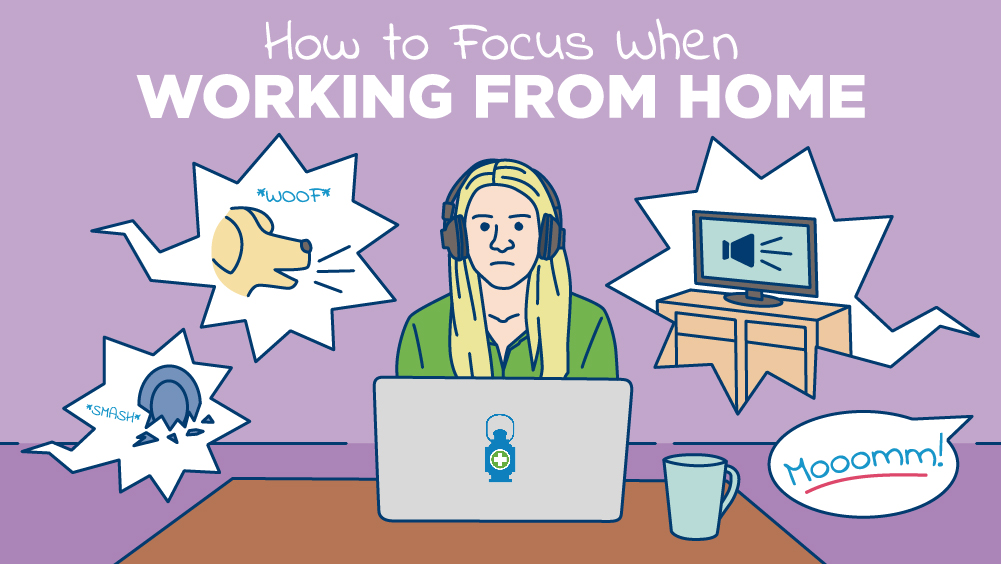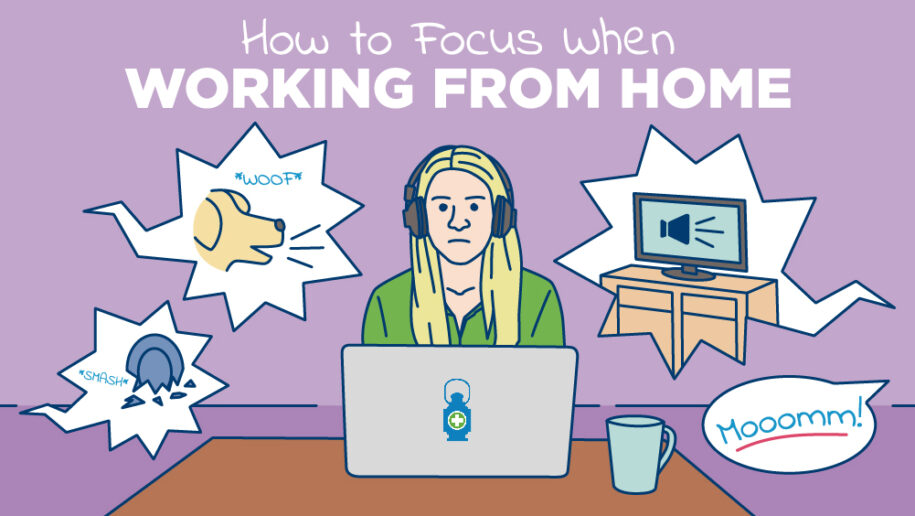
How to Focus When Working From Home — 5 Helpful Tips for Nurses
The experience of working as a remote nurse can be a double-edged sword.
For the independent self-starter, it gives you the freedom to perform your daily duties when and how you want — and to do so while wearing more comfy clothes.
However, for other remote nurses, work-life outside the formal structure and routine of a hospital environment can be challenging, to say the least. With so many potential distractions and no one looking over your shoulder, staying focused and remaining productive requires discipline and healthy habits.
Need help with that?
Here’s how to focus when working from home.
Productivity Tip #1: Create a Routine, Then Stick to It
One of the benefits of a work-from-home nursing job is that you have the freedom to dictate what your schedule looks like. Structured properly, you can create a work routine that makes you more productive and motivated as you serve your patient population.
For that, there are no right or wrong answers. Rather, consistency is key. Setting a daily schedule and then sticking to it helps ingrain positive work habits. But if your schedule changes each day, it’s much easier to get distracted or build negative habits.
At the very least, you should set a consistent schedule for:
- Waking up
- Breaks
- Meals
However, you can further enhance your productivity by planning specific time slots for particular tasks, like answering emails or consulting with patients.
Productivity Tip #2: Establish a Dedicated Workspace
Even though it may be difficult (if not impossible) to separate work life from home life, especially in a smaller space, you should take purposeful steps to create a distinction between the two. By setting aside a dedicated workspace — be it a desk or spare bedroom — it’s easier to channel the proper mindset for work.
Whatever you do, don’t work from your bed. It’s not only bad for your posture, but it can also blur the boundaries between work and sleep in your brain. If your brain starts associating that place with work, it may be harder to fall and stay asleep at night [1].
Productivity Tip #3: Ditch Digital Distractions
Social media siren’s call is purposefully designed to suck you in and keep you scrolling for hours on end. Taking “just a five-minute social media break” can seemingly teleport you into the future.
So, if you don’t want to fall down that rabbit hole, you shouldn’t even glance at it.
But how do you stay away from temptation? Some steps you can take to reduce or eliminate social media’s allure include:
- Silencing alerts and notifications
- Logging out of your social accounts
- Using an app blocker that sets scheduled blocks on distracting apps
- Removing the apps from your phone
Productivity Tip #4: Establish Boundaries
Similar to your schedule and work station, you must establish firm boundaries separating your personal life from work life, and vice versa. This can be difficult, especially if you have a family or roommates who are also at home throughout the day, and who may pull at your attention.
To avoid such distractions, share your schedule with them so they understand there’s a clear difference between work time and playtime.
And, remember that this work-life balance goes both ways.
Because of the blurred lines between the two, your coworkers may request your time or attention after the work day has concluded. Unless the matter is urgent or a health emergency, gently push back and suggest reconvening the next day when you’re back on the clock; otherwise, you’ll set expectations that you’re available at all times.
Productivity Tip #5: Take Care of Yourself
When working from home, creating healthy routines is an essential way to maintain momentum and motivation. If you don’t take care of yourself, there’s a much higher chance you’ll burn out.
Consider setting aside time each day for the following activities:
- Eating – A well-rounded and balanced diet provides the sustenance you need to fuel your daily activities. Be sure to eat something before you work and then stop for lunch.
- Sleeping – Sleep is vital to your health, recovery, energy and brain activity. Although it may be difficult, you should force yourself to get at least 8 hours of sleep each night.
- Exercising – Whether it’s a morning swim, a brief mid-day jog or an evening lifting session in the gym, performing daily exercise will support both your mental and physical health. The specific activity doesn’t matter so long as it gets your heart rate pumping.
- Breaks – The brain processes information in cycles, and concentration naturally wanes over a continued time. Taking small 5–10 minute breaks — whether that’s to stretch, take a short walk or refill your coffee — is a powerful strategy for resetting your focus, allowing you to jump back into work without mental fatigue [2].
Stay Productive in Your Virtual Nursing Career with Signallamp Health
The evolution of the modern, remote workplace is still in medias res. As society reorients to this paradigm shift, out-of-office workers must establish healthy habits and structures that make it easier to focus on work, regardless of the distractions part and parcel of being in a comfortable setting.
Are you a responsible, self-starter looking for remote nursing opportunities?
At Signallamp Health, we connect nurses who specialize in the areas of remote patient monitoring and chronic care management with patients who need remote monitoring and preventative care.
Want to discover more about being a nurse at Signallamp Health? Contact us today.
1. Hubbard, Ashley. “6 Reasons Working from Bed Isn’t Doing You Any Favors.” Healthline. https://www.healthline.com/health/working-from-bed-isnt-doing-you-favors. [Accessed: February 23, 2023]
2. Weir, Kirsten. “Give Me a Break.” APA. January 2019. https://www.apa.org/monitor/2019/01/break. [Accessed: February 23, 2023].

